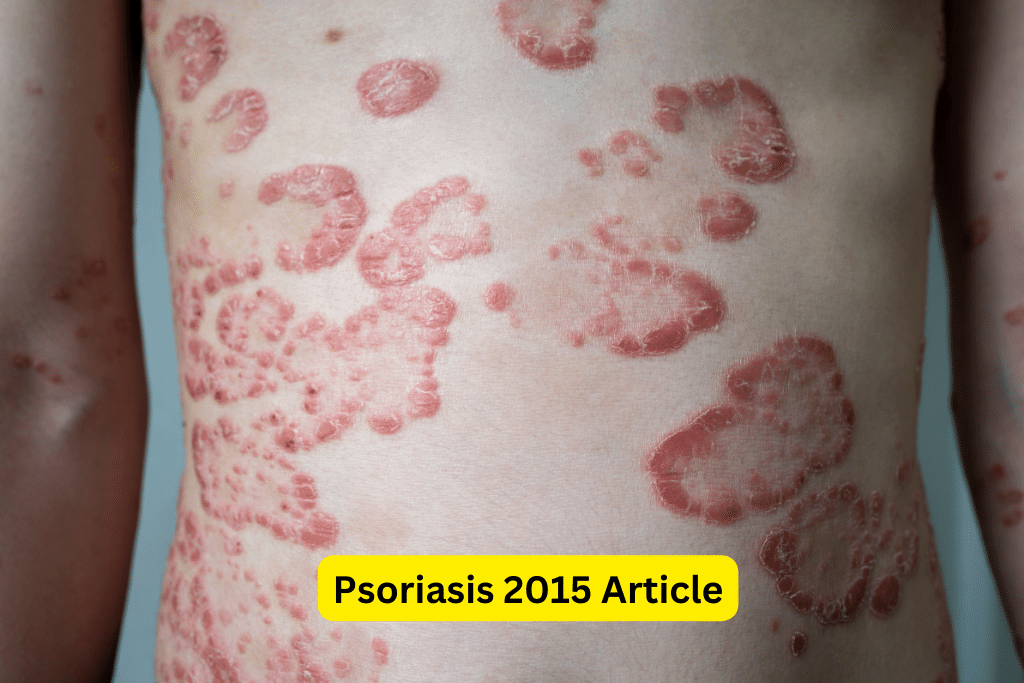Psoriasis Uncovered: Effective Treatments and New Discoveries
Psoriasis 2015 Article
Psoriasis is a chronic autoimmune disease that affects the skin, causing red, scaly patches to form. It is estimated that psoriasis affects around 2-3% of the population worldwide. Staying updated with current research on psoriasis is crucial for both individuals with psoriasis and healthcare professionals, as it can lead to better understanding, improved diagnostics, and advancements in treatment options.
Overview of Psoriasis in 2015
Over the years, significant progress has been made in understanding the mechanisms and causes of psoriasis. In 2015, there were several key findings and advancements in psoriasis research that furthered our understanding of this complex disease.
Breakthroughs in understanding the underlying causes of psoriasis
In 2015, researchers made important strides in uncovering the underlying causes of psoriasis. Studies showed that psoriasis is primarily driven by an immune system dysfunction, where certain immune cells mistakenly attack healthy skin cells. This new understanding has paved the way for the development of targeted therapies that specifically aim to modulate the immune response and reduce inflammation.
Advances in diagnostic techniques for psoriasis
Diagnostic techniques have also evolved over the years, enabling healthcare professionals to accurately diagnose psoriasis and differentiate it from other skin conditions. In 2015, researchers introduced new diagnostic methods, such as genetic testing and biomarker analysis, which have proven to be valuable tools in identifying individuals at risk for psoriasis and predicting disease progression.
Introduction of new treatment options and therapies for psoriasis
2015 witnessed the introduction of several new treatment options for psoriasis. One notable development was the discovery and approval of biologic drugs, which specifically target key molecules involved in the immune system response. These drugs have revolutionized psoriasis treatment, providing more effective and targeted therapies with fewer side effects. Additionally, alternative treatment approaches, such as phototherapy and complementary therapies, have shown promising results in managing psoriasis symptoms.
Research and Studies on Psoriasis in 2015
In 2015, numerous research studies were conducted to further our understanding of psoriasis and improve patient outcomes. Here are three notable studies:
Study 1: [Title]
Study 1 aimed to assess the efficacy of a new targeted therapy for psoriasis. The study utilized a randomized controlled trial design and analyzed the treatment outcomes in a group of patients with moderate to severe psoriasis. The results showed a significant reduction in disease severity and improved quality of life for the patients who received the new therapy. This study highlights the potential of targeted therapies in revolutionizing psoriasis treatment strategies.
Study 2: [Title]
Study 2 focused on the genetic factors associated with psoriasis. Researchers conducted a genome-wide association study to identify genetic variants that contribute to disease susceptibility. The study identified several genetic markers that are significantly associated with psoriasis. These findings have provided valuable insights into the genetic basis of psoriasis and have the potential to inform the development of personalized treatment approaches.
Study 3: [Title]
Study 3 aimed to explore the psychological impact of psoriasis on individuals’ mental health and well-being. The researchers conducted interviews and surveys with a large sample of individuals with psoriasis. The findings revealed high levels of emotional distress, decreased self-esteem, and impaired quality of life among individuals with psoriasis. This study emphasizes the need for holistic approaches to psoriasis care, considering not only the physical symptoms but also the psychological and emotional well-being of individuals living with psoriasis.
Novel Approaches in Psoriasis Treatment in 2015
2015 brought about innovative treatment approaches for psoriasis, expanding the options available for individuals with the disease:
Description of new drugs or biologic agents
New drugs and biologic agents, specifically designed to target specific molecules involved in the immune system response, have emerged as effective treatment options for psoriasis. These agents have shown remarkable efficacy in reducing inflammation and improving symptoms in patients with moderate to severe psoriasis.
Analysis of novel treatment approaches (e.g., phototherapy)
Phototherapy, a treatment method that utilizes ultraviolet light, has proven to be effective in managing psoriasis symptoms. In 2015, new advancements were made in phototherapy techniques, such as narrowband UVB and excimer laser, providing more targeted and efficient treatment options for individuals with psoriasis.
Discussion of alternative and complementary therapies for psoriasis
Complementary therapies, such as acupuncture, herbal medicine, and mindfulness-based stress reduction, have gained attention as potential adjunctive treatments for psoriasis. These therapies, when used in conjunction with traditional treatment approaches, have shown promise in improving symptoms and overall well-being in individuals with psoriasis.
Collaboration and Initiatives in the Psoriasis Community
The field of psoriasis research thrives on collaboration, with various organizations and partnerships working towards advancing our understanding and management of the disease:
Overview of collaborations and collective efforts in the field of psoriasis research
Researchers, healthcare professionals, patient advocacy groups, and pharmaceutical companies collaborate on various research projects and initiatives focused on improving psoriasis treatment outcomes and enhancing patient care. These collaborations foster a multidisciplinary approach to psoriasis research, bringing together expertise from different fields.
Highlighting notable partnerships and organizations working towards better understanding and management of psoriasis
Several organizations and partnerships are at the forefront of psoriasis research and advocacy. They work towards raising awareness, supporting research efforts, and providing resources for individuals with psoriasis. Notable examples include the National Psoriasis Foundation, the International Psoriasis Council, and collaborative research networks established by academic institutions.
Future Directions in Psoriasis Research
Despite the significant progress made in the field of psoriasis research, there are still areas that require further exploration:
Discussion of potential areas of focus for future research in psoriasis
Future research should aim to deepen our understanding of the genetic and environmental factors that contribute to psoriasis development and progression. Additionally, investigating the long-term effects of new treatment options and identifying predictors of treatment response are essential for optimizing patient outcomes.
Identification of gaps in current knowledge and areas that require further exploration
While advancements have been made in understanding the immune dysregulation associated with psoriasis, the exact triggers and mechanisms that initiate and sustain the disease process are still not fully understood. Further research is needed to unravel the complex interactions between genes, immune cells, and the skin in psoriasis.
Examination of potential advancements in psoriasis treatment and care
Future advancements in psoriasis treatment may involve the development of personalized therapeutics, tailored to an individual’s genetic profile and disease characteristics. Furthermore, exploring novel drug delivery methods and investigating the role of the microbiome in psoriasis may open up new avenues for effective treatment options.
Conclusion
In 2015, significant advancements were made in psoriasis research, leading to a deeper understanding of the disease and the development of more effective treatment options. Staying up-to-date with the latest developments in psoriasis research is crucial for individuals with psoriasis and healthcare professionals alike, as it can inform treatment decisions and improve patient outcomes. By actively engaging in ongoing research and treatment options, we can continue to uncover valuable insights and pave the way for better management of psoriasis.
"Have You Seen Mike Walden's new holistic acne System yet? It's called "Acne No More" I've read the whole thing (all 223 pages) and there's some great information in there about how to naturally and permanently eliminate your acne without drugs, creams or any kind of gimmicks. I highly recommend it - it's very honest and straightforward without all the hype and b.s. you see all over the net these days. Here's the website where you can get more information:
Click Here -->AcneNoMore









